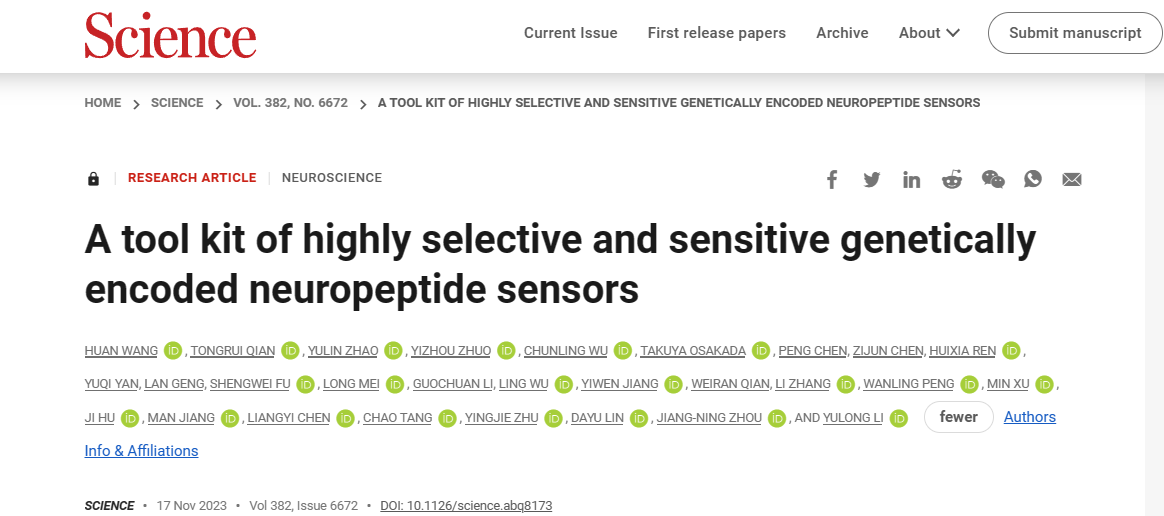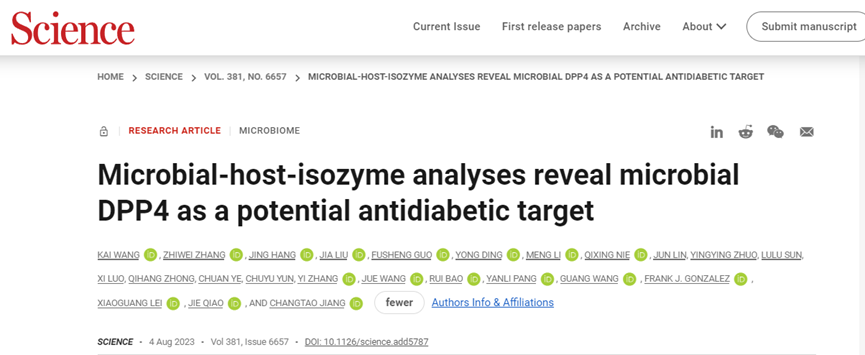Three PKU teams recognized in nation's top 10 science advances list
Mar 07, 2024
Peking University, March 7, 2024: The National Natural Science Foundation of China (NSFC) has recently unveiled the nation's top ten scientific advances of 2023, in celebration of frontier fields such as life sciences, artificial intelligence, quantum science, astronomy, and energy. Among them, three research endeavors led by professors from Peking University (PKU), namely Li Yulong, Jiang Changtao, and Qu Lijia, have earned acclaim in the field of life sciences.
Li Yulong's team pioneered a method for constructing neuropeptide probes, enabling researchers to visually apprehend neuropeptide dynamics. This groundbreaking study not only bridged a global technical gap but also provided indispensable technical backing for neuroscience investigations. The results of this endeavor have been published in prestigious journals such as Science and Nature Biotechnology.
Collaborating with Wang Guang from Capital Medical University, Jiang Changtao, along with Qiao Jie and Lei Xiaoguang from Peking University, introduced a new theory termed "intestinal bacteria-derived host isoenzyme." Their work culminated in the development of a bacteria-derived DPP4 inhibitor, exhibiting promising outcomes in clinical trials. This breakthrough is anticipated to revolutionize precision treatment for metabolic disorders.

In a separate endeavor, Qu Lijia and Zhong Sheng introduced a "lock-key model," shedding light on the mechanisms underlying reproductive disorders across species and genera. Published in Cell, their findings have garnered widespread attention within the international botanical community, prompting review papers in esteemed journals like Nature Plants, Molecular Plants, and Advances in Plant Science. These reviews emphasize the study's establishment of a vital theoretical framework and innovative approach towards surmounting barriers in plant reproduction, thereby facilitating precise remote hybridization among plants.
The NSFC is a major source of funding in China for basic research and frontier exploration. More than 2,100 experts, including over 430 Chinese academicians, voted on the results.
According to NSFC, approximately 45 percent of the researchers involved in these studies are under the age of 45, underscoring the burgeoning influence of young scientists in driving China's foundational research efforts.
Written by: Chen Chuyun
Edited by: Dennis Meng
Source: Xinhua News, PKU News (Chinese)
Cover photo: Pan Jianghui



